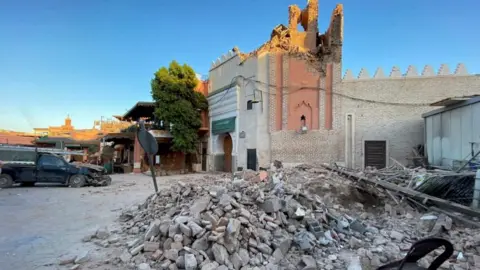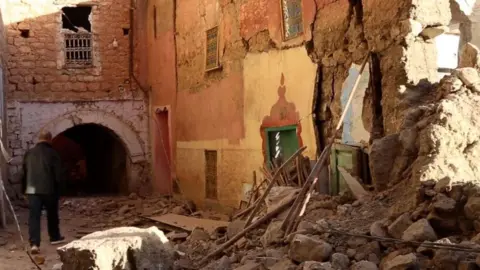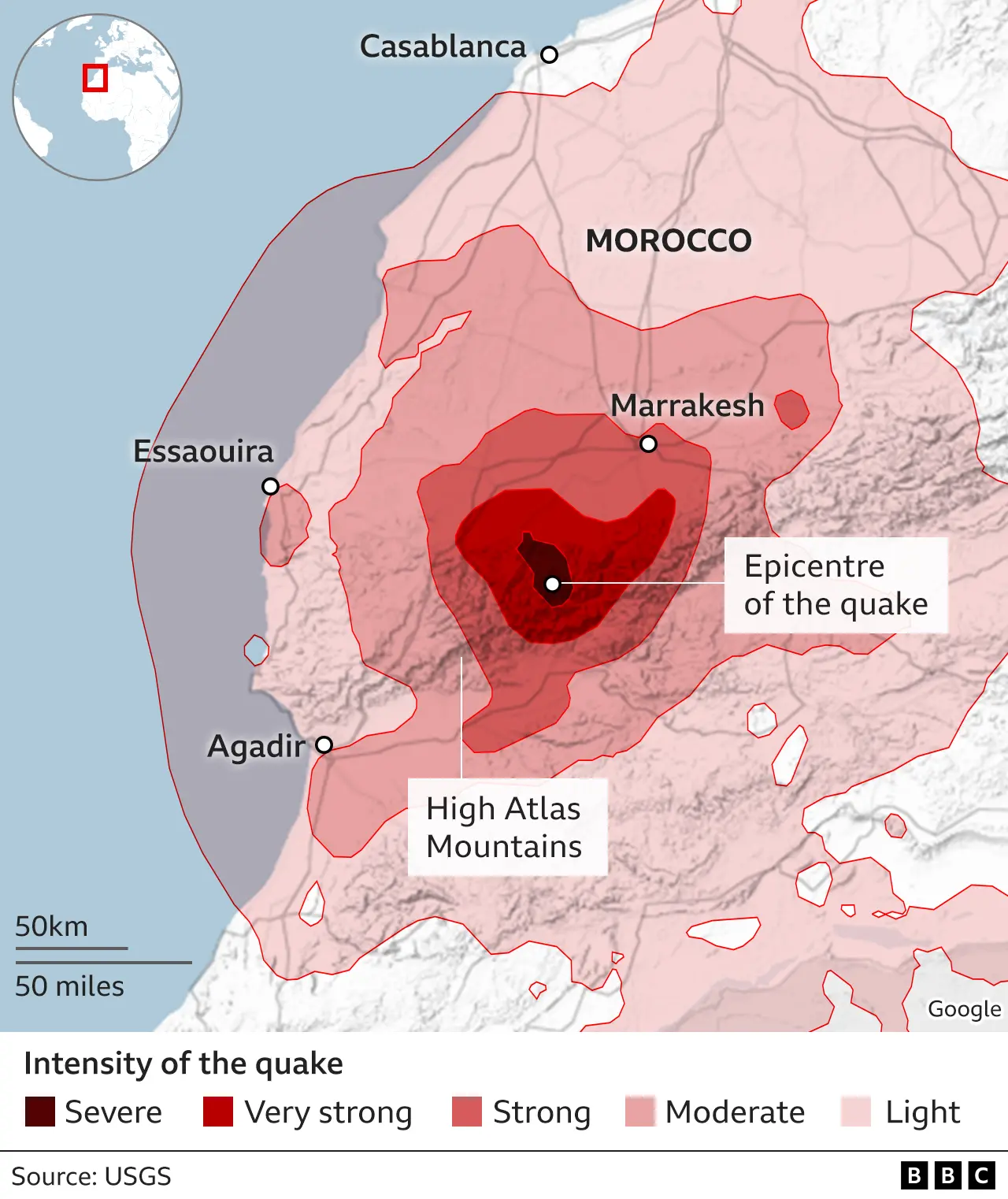Morocco earthquake: Such magnitude unusual for country
 Reuters
ReutersThe earthquake of magnitude 6.8 which has hit central Morocco is the biggest the area has seen since before 1900.
Thousands have died in the quake, which struck at 23:11 local time on Friday.
The epicentre was in the High Atlas Mountains, 71km (44 miles) south-west of Marrakesh, at a depth of 18.5km, the US Geological Survey said.
The main tectonic driver is the collision between the plates that carry the European and African continents.
This quake will be related to the thrusting and faulting that continues to push up the Atlas Mountains.
But Morocco is not really the place where such powerful earthquakes occur.
Most of the earthquake activity from this slow (4mm/year) geological "car crash" is further east in the Mediterranean, around Italy, Greece and towards Turkey.
 Getty Images
Getty ImagesIn terms of history, there has been nothing bigger than a magnitude 6.0 within 500km (300 miles) of Friday night's epicentre since before 1900.
This unfamiliarity has consequences. The quake memory in the population will be limited and so will have been the preparedness.
"There's nobody alive in the local area who experienced an earthquake as big as this, and if they're close to the epicentre the shaking would have been very intense and buildings won't have been built to seismic resilience standards, even the modern ones," David Rothery, professor of planetary geosciences at the Open University, UK, told BBC News.
It is often also the case that quakes that hit at night have bigger death tolls, as people are more likely to be inside collapsing buildings.
The US Geological Survey runs a model that estimates the probable scale of the casualties and economic losses. It suggests for this event that the death toll could be in the high hundreds to low thousands.
The current toll could therefore rise and there could be aftershocks. As a rule of thumb people could expect to see one that is about one magnitude less than the main shock.
But even smaller tremors risk bringing down already damaged buildings.

